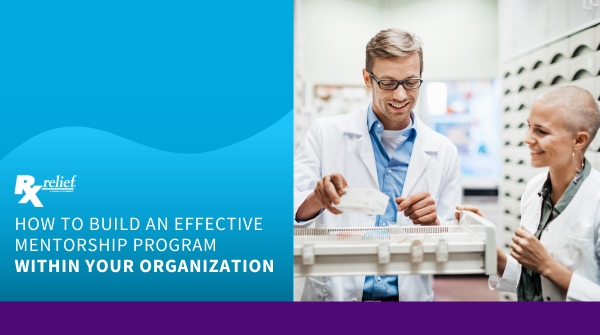How to Build an Effective Mentorship Program Within Your Organization

A well-designed mentor program can contribute to an organization’s success by fostering professional growth, increasing employee satisfaction, and enhancing overall productivity. Mentorship initiatives can create a positive work environment where knowledge and skills are shared, leading to a more engaged and capable workforce. Here’s a guide on how to build an effective mentor program within an organization:
Define Clear Objectives
Begin by outlining the program’s objectives and aligning them with the organization’s goals. Determine the specific skills, competencies, or areas of improvement that the mentor program aims to address. This clarity will help in selecting suitable mentors and the people they will work with, as well as measuring the program’s success.
Identify Mentors and Mentees
Identify potential mentors within the organization who have the experience, expertise, and willingness to guide others. Similarly, identify people who can benefit from guidance and support. Consider factors such as skills, personalities, and developmental needs when pairing mentors with their potential mentees.
Provide Mentor Training
Being a mentor requires a unique set of skills beyond subject matter expertise. Offer mentor training to equip mentors with effective communication, active listening, and coaching techniques. Training should also focus on setting expectations, goal setting, and overcoming common mentoring challenges.
Establish Program Guidelines
Develop clear guidelines and expectations for mentors and those they are mentoring. Define the frequency and format of meetings, expected outcomes, and the duration of the mentorship. Encourage open communication and confidentiality within the mentoring relationship.
Foster a Supportive Culture
To ensure the program’s success, create a supportive culture that values mentorship. Promote mentorship as a key aspect of professional development and recognize mentors for their contributions. Encourage senior leaders to participate as mentors to demonstrate the organization’s commitment to the program.
Monitor and Evaluate Progress
Regularly monitor the progress of mentorship relationships and evaluate the program’s effectiveness. Collect feedback from both mentors and mentees to identify areas for improvement and to make necessary adjustments to the program.
Offer Additional Resources
Provide mentors and mentees with access to additional resources, such as workshops, seminars, or online courses, to supplement their mentoring experience. These resources can enhance skill development and enrich the overall learning experience.
Celebrate Success Stories
Share success stories of mentorship within the organization to inspire others to participate and showcase the program’s impact. Highlight the achievements of mentees who have grown professionally through the guidance of their mentors.
Continuous Improvement
Continuously improve the mentor program. Stay receptive to feedback, embrace new technologies, and adapt to changing needs to ensure the program remains relevant and valuable.
If you are an employer looking for pharmacists, Rx relief is ready to help you. We are one of the nation’s leading pharmacy placement firms. Rx relief has received Best of Staffing awards from both clients and talent.



